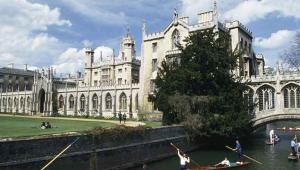Lost amid last week’s local elections was the ignominious first anniversary of most of the ten largest cities in England overwhelmingly rejecting the concept of directly-elected mayors.
Just two, Bristol and Liverpool, went ahead with the idea (and Liverpool did so without a referendum). The other cities saw support spread from the mid-30s up to 47%. (The higher figure was in Manchester, where despite the success of Greater Manchester’s combined authority model, nearly half of Mancunians backed a city mayor).
But a loss is a loss and there are no silver medals in elections. A year on though, what difference, if any, would having more elected mayors have made?
Faced with the government’s austerity measures, it is easy to conclude ‘not much’. Local government finds itself implementing eye-watering spending cuts that, in the view of Birmingham’s council leader Sir Albert Bore, will inexorably lead to 'the end of local government as we know it'.
He is not alone in ringing the alarm bells. In January, Liverpool’s first elected mayor, Joe Anderson, called a cuts summit of big city political figures to protest against 'unfair' funding formulas that disadvantage big cities.
Coupled with the scale of spending reductions comes the government’s perhaps counter-intuitive decentralisation of new powers under the aegis of city deals, with promises to go further with the implementation of Lord Heseltine’s No Stone Unturned review into promoting local economic growth.
But these new powers gravitate towards unelected and unaccountable local enterprise partnerships, opening up a worrying democratic deficit where more and more regeneration and development policy operates outside of direct local democratic control.
In the cities, the imprimatur of the elected mayor on regeneration strategy would help bridge this accountability divide. Moreover, a college of big city mayors would have been a powerful new constitutional innovation, providing a provincial counterweight to Whitehall, with the potential to work collaboratively in setting a whole new localist agenda.
One that is sorely needed. Bore recently claimed local government was in a 'stand-off' with Communities’ Secretary Eric Pickles over future cuts after the government publishes the findings of its Spending Review on 26 June.
Of course, mayors are no panacea when it comes to cuts, and this is a process that would be happening regardless. But their direct mandate represents raw political clout that could have been marshalled to face down central government and demand a better settlement. There are no limits to having people power on your side and, effectively applied, the role of ‘soft’ power in persuading and cajoling and shifting the terms of debate should never be underestimated.
Especially when directed to the upper echelons of government. David Cameron held out the prospect of Cabinet meetings with big city mayors as an inducement if cities voted for the idea. Now, like the scattered tribes at the Tower of Babel, the big cities have all but forfeited the chance to speak with one loud compelling voice and are left without any clout to influence the decisions taken above them, leaving Eric Pickles’ DCLG to divide and rule.
The failure of the city mayor project sees some call for so-called metro mayors instead. This model is said to provide better scale and more closely reflects the London mayoralty. But this is the elevation of hope over reality, with the concept requiring too much haggling with neighbouring councils to even get off the drawing board. Mayors, of whatever variety, are definitely last season.
We have to accept that a valuable opportunity to rebalance the relationship between local government and the centre was lost 12 months ago. Without the game-changing heft of a college of big city mayors wielding powerful direct mandates to fight for a better deal, local government remains Whitehall’s unhappy supplicant administering central government cuts - and this is not about to change any time soon.
Could mayors have made a difference? It would have required joint determination to become such a counterweight but, yes, I think they could have done.











